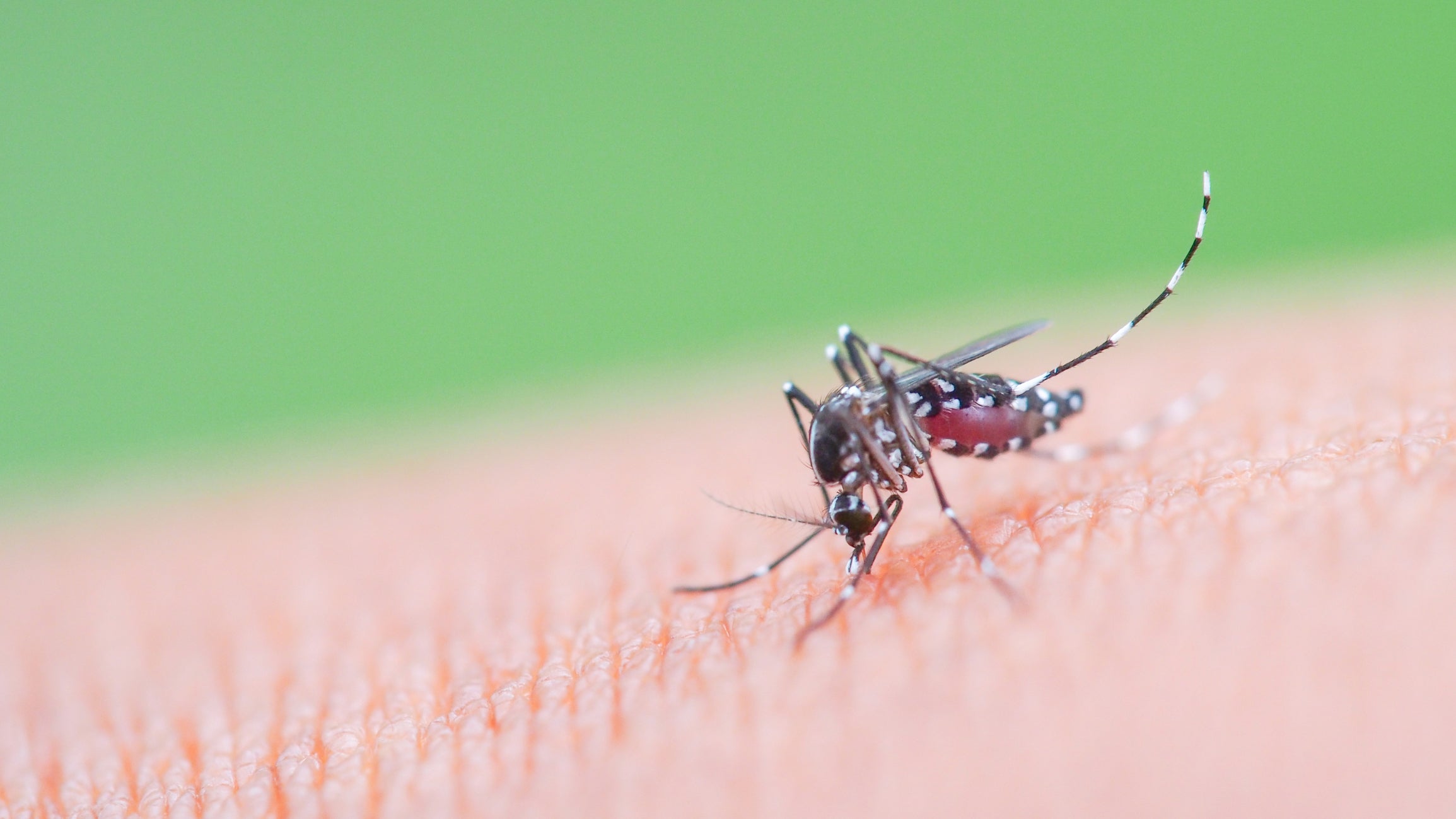Two species of disease-carrying mosquitoes have been identified in the UK, and could spread further due to climate change, scientists have warned.
Research teams from the UK Health Security Agency (UKHSA) discovered Aedes aegypti, also known as the Egyptian mosquito, and Aedes albopictus, also known as the (Asian) tiger or forest mosquito, in surveillance traps set to monitor the presence of non-native species in the UK.
Their presence in Europe poses a “significant public health threat”, according to experts, as both species are known to carry several diseases including yellow fever, dengue, chikungunya, Zika and dirofilariasis.
The study by the UKHSA and the Centre for Climate and Health Security found Egyptian mosquito eggs in a freight storage warehouse near London Heathrow Airport in September 2023, and tiger mosquitoes at a motorway service station near Kent in August 2024. Both species are historically linked to subtropical and tropical regions.

The UKHSA regularly monitors mosquito presence in the UK through surveillance at ports, land transport sites, and the Kent marshes. It also runs the Mosquito Recording Scheme (MRS), allowing citizens to report sightings and nuisance biting incidents across the country.
While scientists said there was no evidence the species had travelled widely across the country, they warned such occurrences may become more regular as climates in largely populated cities such as London become more suitable for the insects.
“As urban areas become more climatically favourable for species such as Ae. albopictus, the risk of arboviral diseases like dengue, Zika, and chikungunya increases,” the study’s authors wrote in the journal Global Change Biology.
They added rising temperatures and milder winters have encouraged the northward movement of the species, which had previously been identified in mainland Europe, into southern England.
As temperatures continue to rise, researchers warned both foreign species could establish populations in the south of England over the coming decades. While Zika, dengue, and chikungunya are not currently endemic in the UK, they said warmer climates could contribute to the spreading of these diseases more readily.
Flooding and increased rainfall, which are known consequences of soaring global temperatures, could also provide breeding grounds for the mosquitoes, making their spread more likely, the study suggests,
“Our findings suggest that future incursions of invasive mosquitoes in the UK are likely and undertaking enhanced surveillance is key to identifying and reducing the likelihood of their establishment,” researchers wrote.
“Without timely action, the UK faces the risk of invasive mosquito populations becoming established.”
It comes after research published in August showed dengue fever, which is spread by the Asian tiger mosquito, has been moving steadily northward in Europe since first appearing in Albania in 1979.
The research found the mosquito has accelerated its spread in France, moving from about four miles per year in 2006 to 12 miles per year in 2024.
